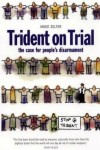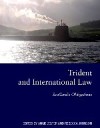By Lucas Wirl, Program Director of International Network of Engineers and Scientists for Global Responsibility
‘You are doing fundamental work, pushing forward the frontiers of knowledge, but often you do it without giving much thought to the impact of your work on society. Precepts such as ‘science is neutral’ or ‘science has nothing to do with politics,’ still prevail. They are remnants of the ivory tower mentality, although the ivory tower was finally demolished by the Hiroshima bomb.’ Address to the scientific community as a whole in the Nobel Lecture “Remember your Humanity” by Joseph Rotblat, Pugwash Conferences on Science and World Affairs, 1995
If science ever had its innocence, it was lost in the 20th century – science was majorly involved in World War I, World War II, and - as the quote of Joseph Rotblat indicates - the development of nuclear weapons in the Manhattan Project. Science was being militarized and a scientification of war, destruction, and suffering took place.
In the 20th century science “whored out” (Einstein) to military ends and created unfathomable destruction and suffering. Nevertheless, it also played a leading role in environmentalism and in improving the humanity and social development of the human beings in progress in health and technology. Thus, science is an integral part of and closely interconnected with society. Forces engaged in peace, justice, and other social and environmental issues have to engage in the struggle for a humanitarian and sustainable orientation of science.
In the beginning of the 21st century a “revolution in military affairs” is taking place. Political strategies on “war on terror”, the increasing transition of purpose of armies from national defense to global intervention, the development and renewal of weapons systems, and the militarization of security demand new knowledge in manifold scientific fields. Science is being increasingly militarized, colonized by the military, and thus enslaved by military aims to provide solutions to these so called “challenges”. Meanwhile research on solutions of the environmental, social, and human problems of the 21st century fall behind if not off the table.
Means for taking forward these military shifts are the economization of science, its subsequent dependency on third party funding, and the breakup of democratic and participative structures in and into scientific institutions. An example is the deliberate pursuit of dual-use[1] research by Ministries of Defense. For instance, the departmental research plan of the Ministry of Defense of Germany estimates that so-called “defensive research” is principally based on the knowledge of civilian research (“add-on principle”), especially “if required by national security interests or the desired profile of skills of the Bundeswehr.”[2] Furthermore, the German research plan elaborates: “Concepts and related technologies relevant for both the military defense research as well as for civil security research constitute the interfaces for civil security research (dual-use principle).”[3] The responsibility of science in and for society and the provision of its resources for solutions of the problems of the 21st century systemically get hijacked for military interests. Dual-use is not a singular phenomenon but can be observed in the history of nuclear technology. The pursuit of civil use of nuclear technology always was and to some extend still is due to the wish of governments to have the military option of nuclear technology up their sleeves; Germany in the 50’s and 60’s, South Africa in the 80’s, and the recent debates around Iran serve as examples. Dual-use undermines democratic processes and participation in science. In this model, primary access to science is granted to military and military companies. The civil-military cooperation serves military usability only, but science must serve the people and the peaceful coexistence of peoples. Which environmental, societal, and human grievances could have been eradicated by naming concrete scientific strategies for human improvement?
A recent prime example for the misuse of scientific and other resources for military means is the reinforcement and worsening of the undemocratic and non-participatory system of nuclear weapons. The modernization of nuclear weapons, by the US government officially termed life expansion, takes up billions of dollars as well as an indeterminable amount of human brain power and resources in the fields of warhead maintenance and modernization, nuclear delivery vehicles, and nuclear factories.[4] According to a conservative estimation by the Stimson Centre modernization will cost at least 352 billion over the next 10 years.[5] And not only the USA – all states owning nuclear weapons modernize their arsenals. What good in the world could be done with this amount of money and with the intellect of thousands of scientists? What if the money and brain power spent for decades of building, rebuilding, and modernizing nuclear weapons would have been spent for the final disposal of nuclear waste and the development of renewable energies?
Questions around “what if” or complaints about the misuse of science will not be helpful to approach the disparity between actions and needs. A debate about the definition, responsibility, and aim of science needs to be initiated. In such a debate the call for civil clauses can be useful.[6] Science needs to be independent and transparent with an orientation towards the social and civil needs and interests of the people. Science needs to be independent of specific interests and not misused for dual-use and military purposes; (therefore) democratic and participative structures and broad access of society to scientific institutions is crucial to this aim. Science needs to have overtly peaceful orientations. These derive from the peaceful international relations and development objectives written in the UN Charter. Peace should be understood as more than the absence of war and violence. It includes the respect of international law, human rights, and the creation of social and environmental living conditions for all people without use of force.
Science, research, and teaching have to commit to peace, the preservation of natural resources, and the challenges – of today and tomorrow – of humankind. That’s the tradition of humanistically-understood science as advocated by Albert Einstein, Linus Pauling and Joseph Rotblat.
For more information on civil clauses please visit www.inesglobal.com
[1] Dual-use is the possibility of the use of technology, knowledge, and research for civilian or military purposes.
[2] Departmental Research Plan 2010, Ministry of Defense of Germany.
[3] Ibid.
[4] A detailed list of expanses according to the financial budget of the US government as well as its implications see Hans Kristensen’s (FAS) blog: http://www.fas.org/blog/ssp/2011/02/nuclearbudget.php
[5] Resolving Ambiguity: Costing Nuclear Weapons: http://www.stimson.org/spotlight/resolving-ambiguity-costing-nuclear-weapons/
[6] A Civil clause is a legally binding document adapted to university statutes and/or the state/federal education laws. It represents a binding commitment to only conduct peaceful and civilian research, development, and teaching.












 Nuclear weapons crime in the UK has been reported to Thames Valley Police.
Nuclear weapons crime in the UK has been reported to Thames Valley Police.










